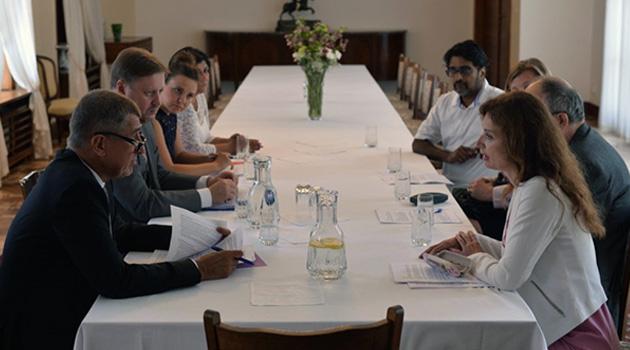Elena Gorolová, who campaigns for compensation for forced sterilization, featured on Czech talk show

Yesterday’s guest on the Jan Kraus Show, a nationally popular television talk show in the Czech Republic, was Elena Gorolová, the Romani woman who was included by the BBC on its list of the world’s 100 most influential and inspirational women last year. She is fighting for women who have been illegally sterilized to be compensated by the state.
The interview was broadcast on 1 May at 22:14 on the commercial Prima television channel and can be watched online here. Gorolová (age 50) was the only woman from the Czech Republic to be included on the BBC’s prestigious list last year.
The activist has been fighting for 15 years for the state to compensate those illegally sterilized in the former Czechoslovakia and Czech Republic. At the age of 21 she was sterilized without her informed consent during the Cesarean delivery of her second son.
“I cannot forgive what they did to me, I was 21 years old, I still have not come to terms with it to this day,” she describes. She and her husband, who has always supported her activities, had always wanted a daughter.
“We wanted a little girl. We wanted to have one more child after our two sons. No more than that. I myself am from a family of just two children,” she says.
Today she is employed as a field social worker for the Life Together (Vzájemné soužití) public benefit corporation. She attempts to help children who have been institutionalized by the state return to their birth families.
“We also strive to make sure children are not institutionalized in the first place,” she says. Since her youth she has been involved in fighting for the rights of the women who were sterilized without their informed consent both before and after 1989.
Doctors performed the surgery without making sure the women were fully aware of its permanent consequences. “I know 200 women to whom this happened. I am in personal contact with 100 of them,” Gorolová says.
In 2009 the Czech Government expressed regret for the unlawfully-performed surgeries. The women have yet to be granted the compensation they seek.
Gorolová says the women subjected to this treatment were not just Romani. “We have women from the majority society among us also. That’s good. The public cannot just perceive this as a Romani problem. It’s a problem of the entire society,” she explains.
Her case was one of many reviewed in 2005 by the Public Defender of Rights in the Czech Republic, which, on the basis of its investigation, called on other victims to come forward. Back then a total of 90 contacted the office, which recommended the victims receive compensation.
While that report broke through the surface of Czech media coverage for a moment, in practice it took years for either the Czech Government or for Parliament to take specific steps to deal with the issue. Human rights activists have made repeated use of the report to call on the international human rights community to urge the Czech Republic to begin taking the legal steps necessary to compensate the victims.
While such calls have been made repeatedly for 15 years, they have yet to result in the introduction of a compensation process for the victims. Since the close of the 1960s until at least 2007, women were sterilized without their informed consent, first in Czechoslovakia and then in the independent states of the Czech Republic and Slovakia after 1993.
